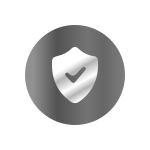 SSL Certificates
SSL Certificates
SSL stands for Secure Sockets Layer, an encryption technology originally developed by Netscape in the 1990s
Yes, you definitely should have one.
Encryption is the backbone of SSL (Secure Sockets Layer) technology, providing the essential mechanism that ensures secure and private communication over the internet.
An SSL Site Seal is a visible badge or icon provided free of cost along with a legitimate SSL certificate.
The SSL padlock is a small security icon that appears in the address bar of modern web browsers.
Always-On SSL means that every page of your website—from the homepage to the deepest subpage.
In today’s digital landscape, website security is no longer optional
Phishing is one of the most dangerous cyber threats on the internet today.
In the digital age, data security is critical. Whether you're running a blog, an online store, or a corporate portal
Domain Control Validation (DCV) is a critical step in the process of issuing an SSL certificate,